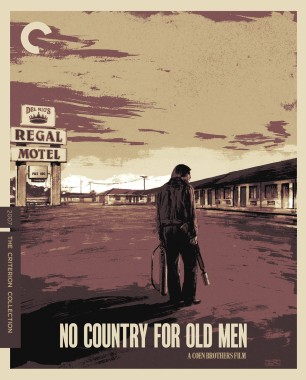No Country for Old Men: All Hell Breaks Loose

It’s no country for old men, but—old, young, men, women—we’ve probably been there before. It’s the country where you’re ambling along, minding your own business, when you find a stolen fortune that someone has buried and never claimed—or that someone has died protecting. It’s the country where the lucky windfall turns out to be the fatal curse, the country where money is a key, not to the mansion on the hill but to the labyrinth of the monster. It’s the country where a briefcase full of hundred-dollar bills is a mirror that shows you what you really want, who you have been all along.
It’s an old story. But Joel and Ethan Coen have managed, as they have in so many of their films, to make it new. They’ve reimagined the book of Job as A Serious Man (2009), reinvented the broken-Hollywood-dreams saga as Barton Fink (1991), revivified the mobster epic as Miller’s Crossing (1990). With No Country for Old Men (2007), they’ve taken Cormac McCarthy’s 2005 novel of the same name and created a unicorn—a film that actually improves upon a beautifully written book.
In Geoffrey Chaucer’s “The Pardoner’s Tale,” three men in search of Death, planning to confront him over the demise of a friend, find a heap of gold coins under a tree and wind up killing one another. The Pardoner tells us that greed is the root of all evil, but the book and film of No Country for Old Men mix it up a little. Sure, there’s greed, but there’s also honor, guilt, love, loyalty, good and bad luck, mercy and mercilessness, the power of fate and chance, psychic meltdowns and metaphysics. In a McCarthy novel, you expect a certain amount of ruminative philosophy; in their adaptation, the Coen brothers pare that down to just as much as we need.
Llewelyn Moss (Josh Brolin), a Vietnam-vet sharpshooter turned welder, is hunting antelope when he wanders into a scene of carnage: three parked pickup trucks whose drivers have been killed in a gory shoot-out. A wounded man begs for water—Moss has none—and, some distance from the crime scene, he finds a dead man under a tree beside a briefcase that turns out to contain $2.4 million in cash.
It also contains a transponder that allows Moss to be tracked by the film’s archvillain, Anton Chigurh (Javier Bardem), a man who has no heart or soul, no conscience or remorse, no needs except the impulse to destroy. He’ll kill you for the hell of it, or if you say one little thing that annoys him, or if you and he cross paths at the wrong place and the wrong time. A fellow (and rival) bounty hunter, Carson Wells (Woody Harrelson), tells Moss that even if he hands the found money over to Chigurh, Chigurh will still kill Moss for “inconveniencing” him. His only virtue is persistence.







